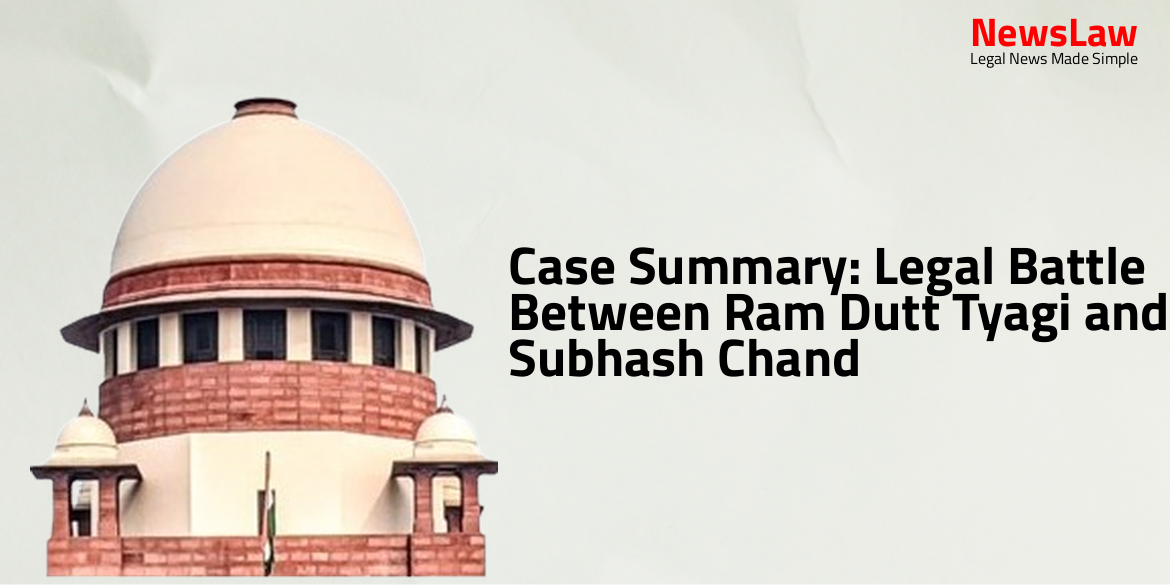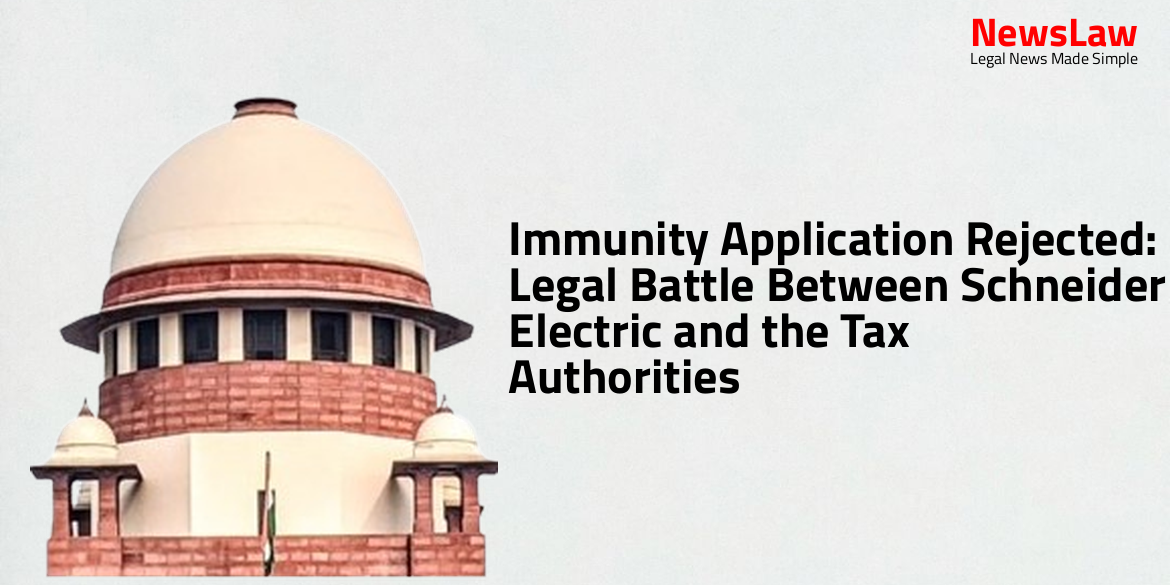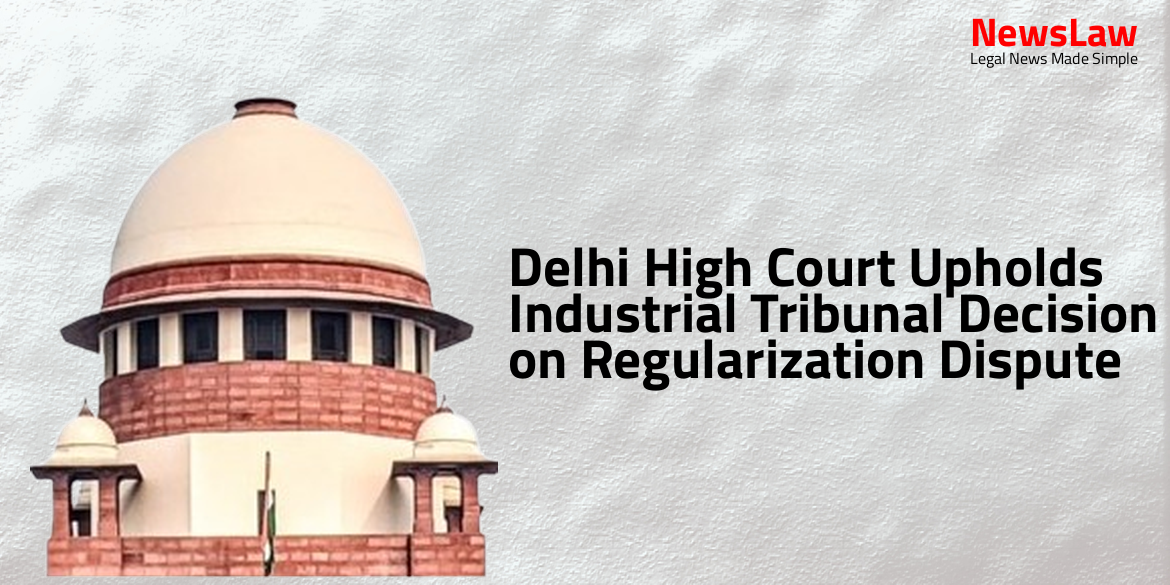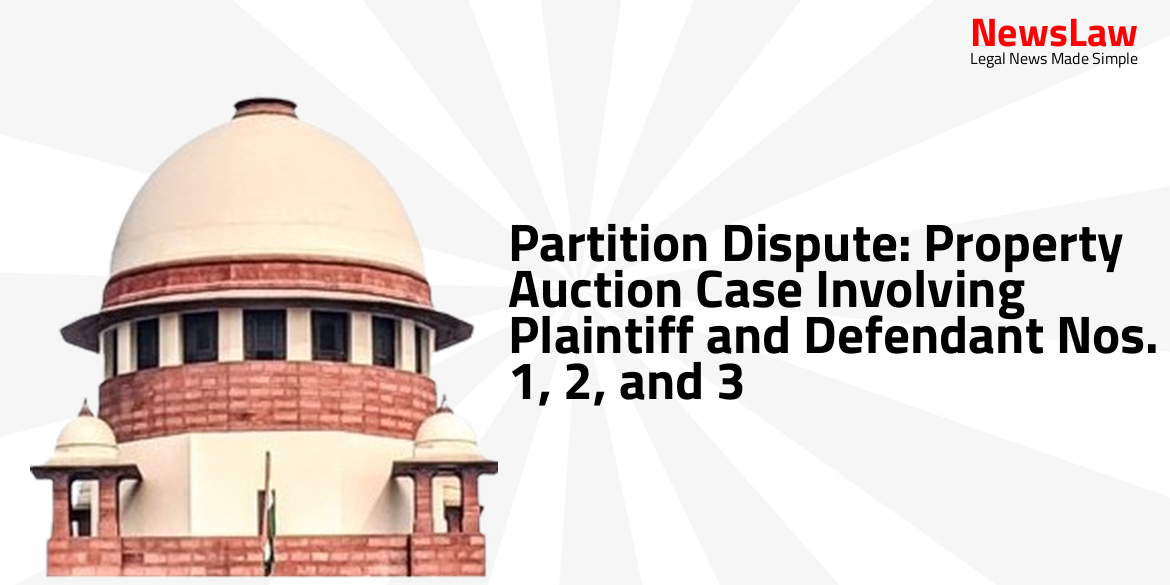In a significant legal development, the Delhi High Court recently ruled on the case involving Ram Dutt Tyagi and Subhash Chand. The case revolved around allegations of bribery, threats, and conflicting witness testimonies. The judgement has brought to light various discrepancies and raised questions about the veracity of the evidence presented. This case has captured widespread attention for its complexity and legal intricacies, shedding light on the challenges of proving demand and acceptance of illegal gratification. Stay informed as we delve deeper into the details of this intriguing legal battle.
Facts
- Complainant reported being threatened by Ram Dutt Tyagi.
- Trial court noted the complaint during the deposition.
- Ram Dutt Tyagi’s bail was canceled and he was sent to judicial custody.
- Ram Dutt Tyagi was sentenced to four years of rigorous imprisonment and fined Rs.500 under various sections of the IPC and PC Act.
- Complainant introduced new facts during his deposition which were not mentioned in his complaint filed against Subhash Chand.
- Ram Dutt Tyagi allegedly threatened the complainant at his taxi stand for payment of Rs. 2,000, implying consequences of false implication in an opium case.
- During the trap proceedings, a raiding team with eyewitnesses reached the taxi stand. A phone call from Subhash Chand confirmed the money was ready and sent Ram Dutt Tyagi to receive it.
- Contradictions were found between the complainant’s complaint and his testimony in court regarding the demand amount of bribe.
- Further, the complainant mentioned the release of Ranjeet Singh after a payment of Rs. 1,000 and promised Rs. 2,000 the next day, another detail not present in the initial complaint.
- The complainant revealed new details during cross-examination, including Subhash Chand’s initial demand of Rs. 5,000 which was reduced to Rs. 3,000, and threats made by him in subsequent encounters.
- Recovery of money from Ram Dutt Tyagi’s pocket was disputed between the prosecution case and complainant’s statement.
- The complainant admitted to information discrepancies between his various statements recorded.
- Allegations of threats and demands were reiterated by Subhash Chand in subsequent interactions according to the complainant’s deposition.
Arguments
- The complainant introduced new facts in his testimony, raising doubts on its veracity.
- Material contradictions exist in the evidence of prosecution witnesses regarding acceptance and recovery of bribe amount.
- Subhash Chand arrested Ranjeet Singh and Rajender Kumar under Section 93/97 DP Act for breach of peace on 14.07.1994.
- Complainant’s testimony is deemed unreliable due to contradictions and improvements on the demand aspect.
- Cleaner Nanak Chand, who was present at the police station on the night of 13/14.07.1994, was not examined.
- Subhash Chand was alleged to be falsely implicated at the behest of SK Peshin, DSP, CBI due to a previous disagreement.
- Contradictions in prosecution case as evidenced by DD No. 25A and conviction slip recorded on 14.07.1994 at 3:25 A.M.
- Shadow witness denied the suggestion that the bribe notes were counted before being put in the pocket.
- Inconsistencies between complainant’s statement and recovery memo regarding how the bribe amount was accepted and kept.
- Recovery witnesses Varinder Singh Dagar (PW3) and Jagdish Lal (PW4) did not support the prosecution’s case and were declared hostile.
- Prosecution did not examine the two persons, Ranjeet Singh and Rajender Kumar, who were arrested by Subhash Chand and were related to the alleged demand.
- Ram Rattan Sharma, the complainant, was examined as PW1 in the trial on multiple dates.
- His examination-in-chief began on 03.06.1997.
- The complainant deposed that their driver Ranjit Singh was apprehended by the police officials of P.S. Lodhi Colony on the night of 13/14.07.1994.
- Ram Dutt Tyagi initially absconded and had threatened the complainant as mentioned in the proceedings dated 13.10.1997.
- The prosecution case had contradictions regarding the timing of proceedings, witness position during trap, arrival of the appellant, position while receiving money, apprehension, and the procedure of handwash conducted.
- Learned Senior Counsel for Ram Dutt Tyagi adopted the contentions made by learned counsel for Subhash Chand.
- Learned SPP for CBI defended the impugned judgment, stating that the prosecution successfully established its case against the appellants.
- It was argued that the appellants failed to rebut the presumption raised under Section 20 of the PC Act.
- Various court decisions were cited by both parties in support of their contentions.
Analysis
- There were contradictions in witness statements regarding the location of the proceedings and the handling of the accused after apprehension.
- SK Peshin played a significant role but was not called as a prosecution witness, acting instead as a shadow witness.
- Contradictions in witness testimonies regarding the handling of the accused post-trap were highlighted.
- The prosecution must prove the offer by the bribe giver and the demand by the public servant as facts in the issue.
- The importance of foundational facts in proving the demand and acceptance of illegal gratification was emphasized.
- Witnesses mentioned the involvement of SK Peshin in raid proceedings.
- Sanction for the trial was proven through witness deposition without any contention raised on the issue.
- Improvements and contradictions in the complainant’s testimony raised doubts on the demand attributed to Subhash Chand.
- The court discussed the possibility of proving demand through circumstantial evidence or the testimony of other witnesses in case of the complainant turning hostile or being unavailable.
- Allegations of planting the case against Subhash Chand were raised, indicating a potential grudge by SK Peshin.
- (a) The prosecution has the initial burden to prove demand and acceptance of illegal gratification by a public servant.
- (b) Proof of demand and acceptance is necessary under Sections 7 and 13(1)(d)(i) and (ii) of the Act.
- (c) The prosecution must establish the demand and subsequent acceptance as a matter of fact.
- (d) This proof is essential for cases involving illegal gratification.
- Acceptance of illegal gratification by public servant without any demand constitutes a violation of Section 7 of the Act.
- In cases where the bribe giver offers payment without any prior demand from the public servant, acceptance of the bribe constitutes an offense under the Act.
- Presumption under Section 20 of PC Act can be rebutted by the accused.
- The presumption under Section 20 does not apply to Section 13(1)(d) of the PC Act.
- The presumption under Section 20 is distinct from a presumption of fact, as it is mandatory while the latter is discretionary.
- The conviction is set aside as the prosecution failed to prove the demand of bribe beyond reasonable doubt.
Decision
- The present appeals and pending application have been disposed of
- Bail bond and surety bond have been discharged
- As a necessary consequence, the accused have been acquitted of the charges framed
Case Title: RAM DUTT TYAGI Vs. STATE THR. C.B.I. (2024:DHC:4070)
Case Number: CRL.A.-779/2002



